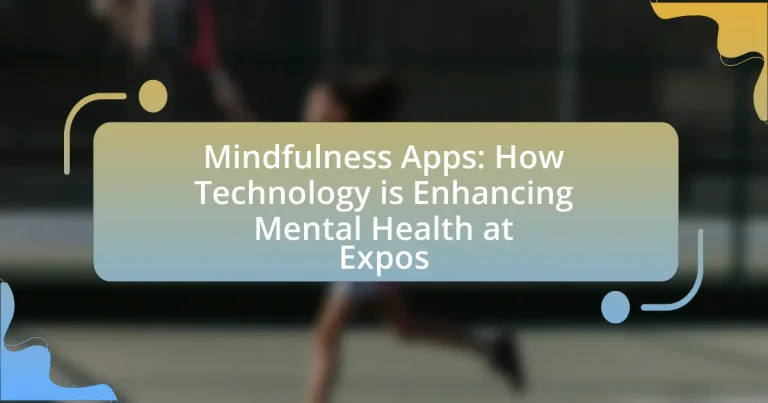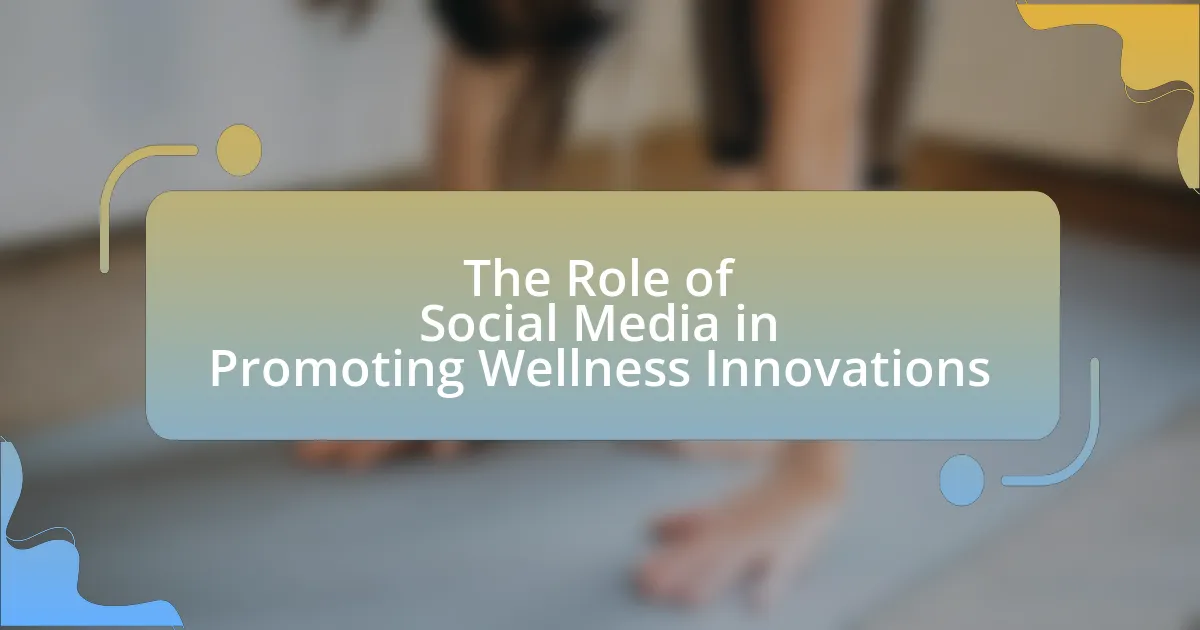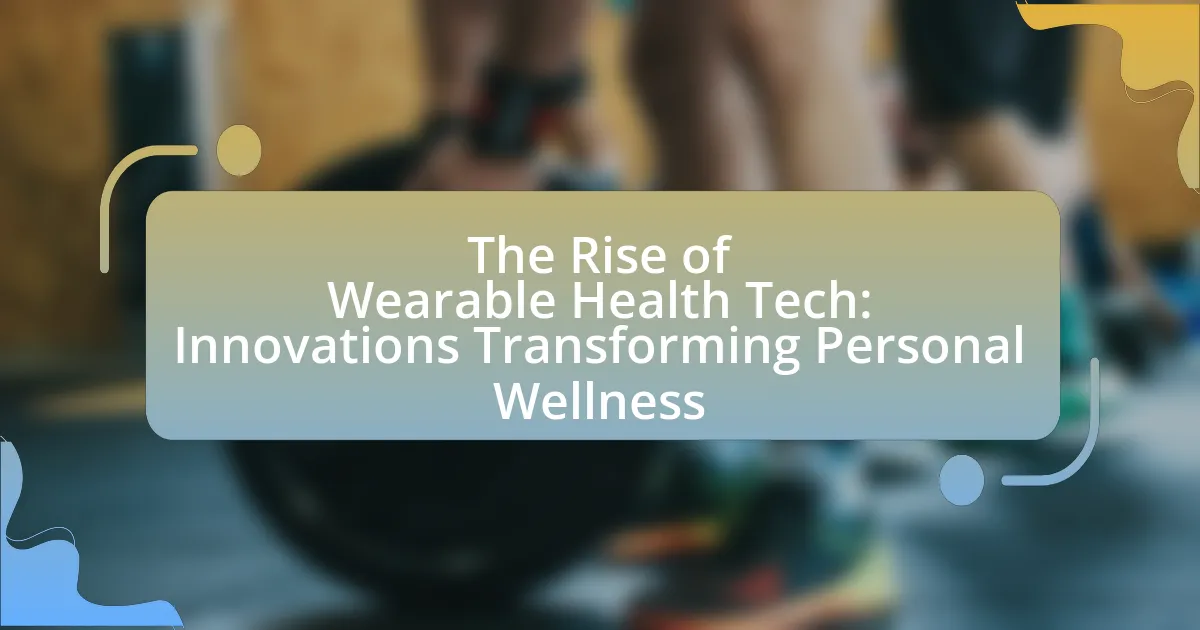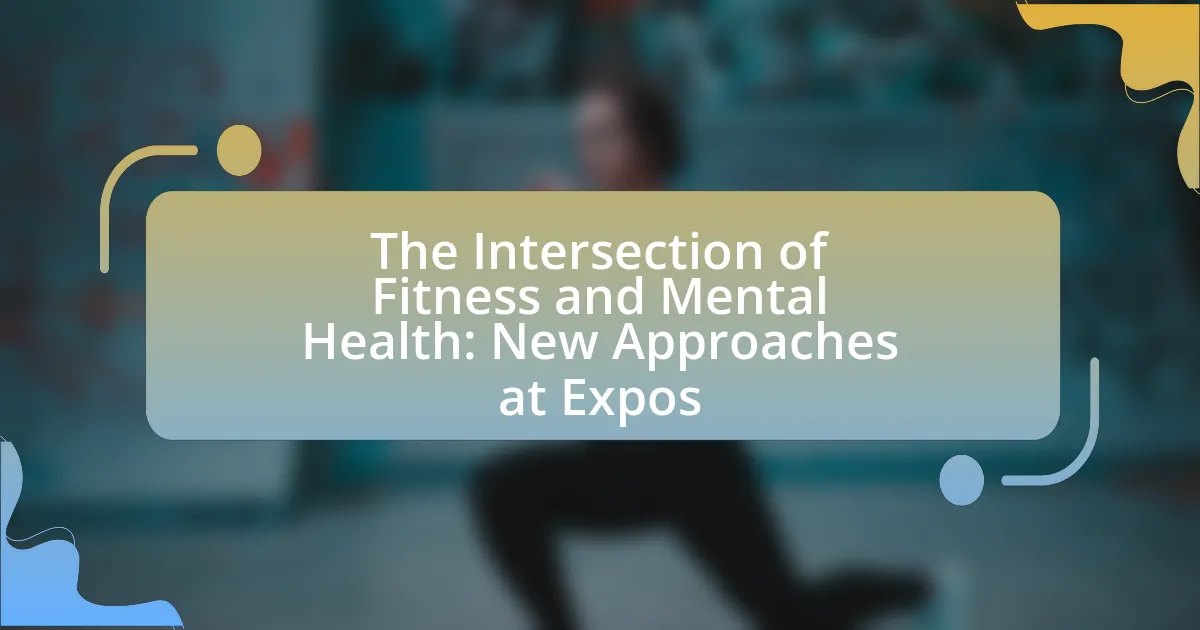Mindfulness apps are digital tools designed to enhance mental health by promoting mindfulness practices such as meditation and stress reduction. This article explores how these apps contribute to mental well-being, detailing their features like guided meditations, progress tracking, and community support. It also examines the growing popularity of mindfulness apps at expos, highlighting their role in providing accessible wellness solutions and fostering user engagement. Additionally, the article addresses the technological advancements that improve accessibility and effectiveness, as well as the challenges developers face in creating these applications. Finally, it offers strategies for users to maximize the benefits of mindfulness apps during and after expos.
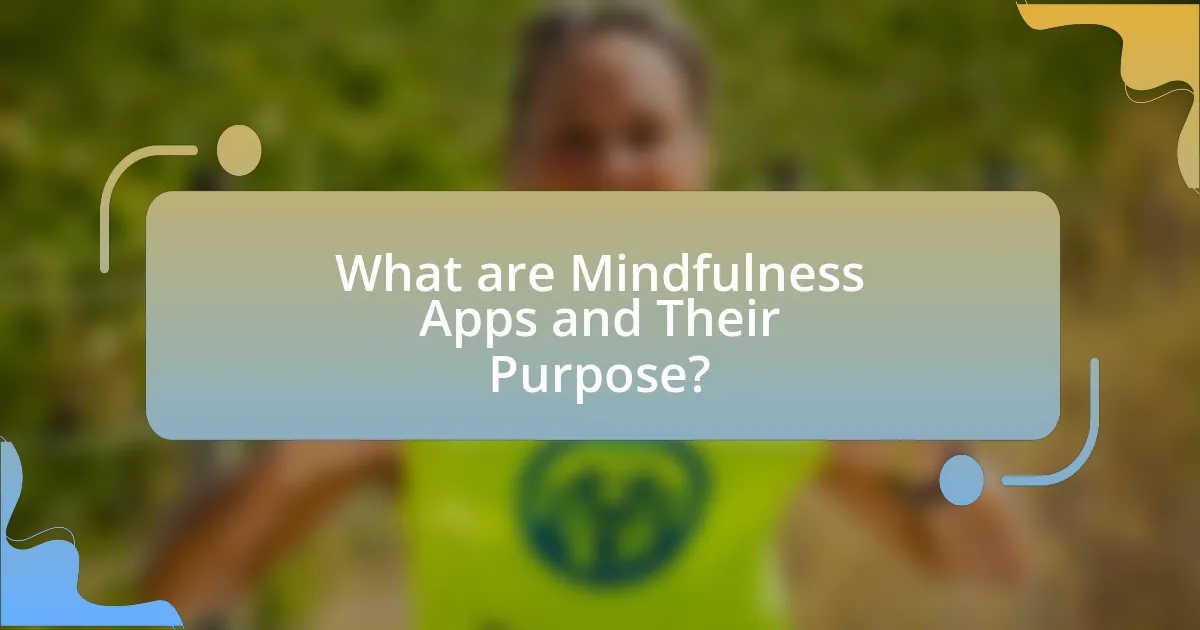
What are Mindfulness Apps and Their Purpose?
Mindfulness apps are digital applications designed to promote mindfulness practices, such as meditation and stress reduction. Their primary purpose is to help users cultivate awareness, improve mental well-being, and manage stress through guided exercises, reminders, and tracking features. Research indicates that mindfulness practices can lead to reduced anxiety and improved emotional regulation, supporting the effectiveness of these apps in enhancing mental health.
How do Mindfulness Apps contribute to mental health?
Mindfulness apps contribute to mental health by providing users with tools and resources to practice mindfulness and meditation, which can reduce stress and anxiety. Research indicates that regular use of mindfulness apps can lead to significant improvements in mental well-being; for instance, a study published in the journal “Psychological Science” found that participants who used mindfulness apps reported lower levels of anxiety and improved emotional regulation. These apps often include guided meditations, breathing exercises, and progress tracking, which help users develop a consistent mindfulness practice, further enhancing their mental health outcomes.
What features do Mindfulness Apps typically include?
Mindfulness apps typically include features such as guided meditations, progress tracking, reminders, and community support. Guided meditations provide users with structured sessions to enhance their mindfulness practice, while progress tracking allows users to monitor their meditation habits and improvements over time. Reminders help users establish a consistent practice by prompting them to meditate regularly. Community support features, such as forums or social sharing options, foster a sense of connection among users, enhancing motivation and accountability. These features are designed to improve mental well-being and promote regular mindfulness practice, as evidenced by studies showing that consistent use of mindfulness apps can lead to reduced stress and anxiety levels.
How do these features enhance user experience?
Mindfulness app features enhance user experience by providing personalized content, interactive tools, and real-time feedback. Personalized content, such as tailored meditation sessions based on user preferences, increases engagement and satisfaction, as studies show that customization leads to higher user retention rates. Interactive tools, like guided breathing exercises and mood tracking, empower users to actively participate in their mental health journey, fostering a sense of control and ownership. Real-time feedback, through progress tracking and reminders, helps users stay motivated and accountable, which is crucial for maintaining consistent mindfulness practices. These elements collectively create a more immersive and effective user experience, ultimately supporting better mental health outcomes.
Why are Mindfulness Apps gaining popularity at expos?
Mindfulness apps are gaining popularity at expos due to the increasing awareness of mental health and the demand for accessible wellness solutions. These apps provide users with tools for stress reduction, meditation, and mindfulness practices, which are particularly appealing in high-stress environments like expos. The rise in mental health discussions, supported by studies indicating that mindfulness can reduce anxiety and improve overall well-being, further drives interest in these applications. For instance, a report by the American Psychological Association highlights that mindfulness practices can lead to significant improvements in mental health outcomes, making these apps a relevant and attractive option for attendees seeking mental wellness resources.
What role do expos play in promoting mental health technologies?
Expos play a crucial role in promoting mental health technologies by providing a platform for showcasing innovative solutions and facilitating networking among stakeholders. These events allow mental health technology developers to present their products, such as mindfulness apps, to a targeted audience, including healthcare professionals, investors, and potential users. For instance, expos often feature demonstrations, workshops, and discussions that highlight the effectiveness and benefits of these technologies, thereby increasing awareness and adoption. Additionally, research indicates that participation in expos can lead to increased funding opportunities and partnerships, which are essential for the growth and dissemination of mental health technologies.
How do attendees benefit from using Mindfulness Apps at expos?
Attendees benefit from using Mindfulness Apps at expos by experiencing reduced stress and enhanced focus. These apps provide guided meditations, breathing exercises, and mindfulness techniques that help individuals manage anxiety and improve their mental clarity in a busy expo environment. Research indicates that mindfulness practices can lower cortisol levels, which are associated with stress, and improve overall emotional well-being. For instance, a study published in the Journal of Health Psychology found that participants who engaged in mindfulness exercises reported a significant decrease in stress levels and an increase in positive mood states. Thus, utilizing mindfulness apps at expos equips attendees with tools to cultivate a calmer and more productive experience.
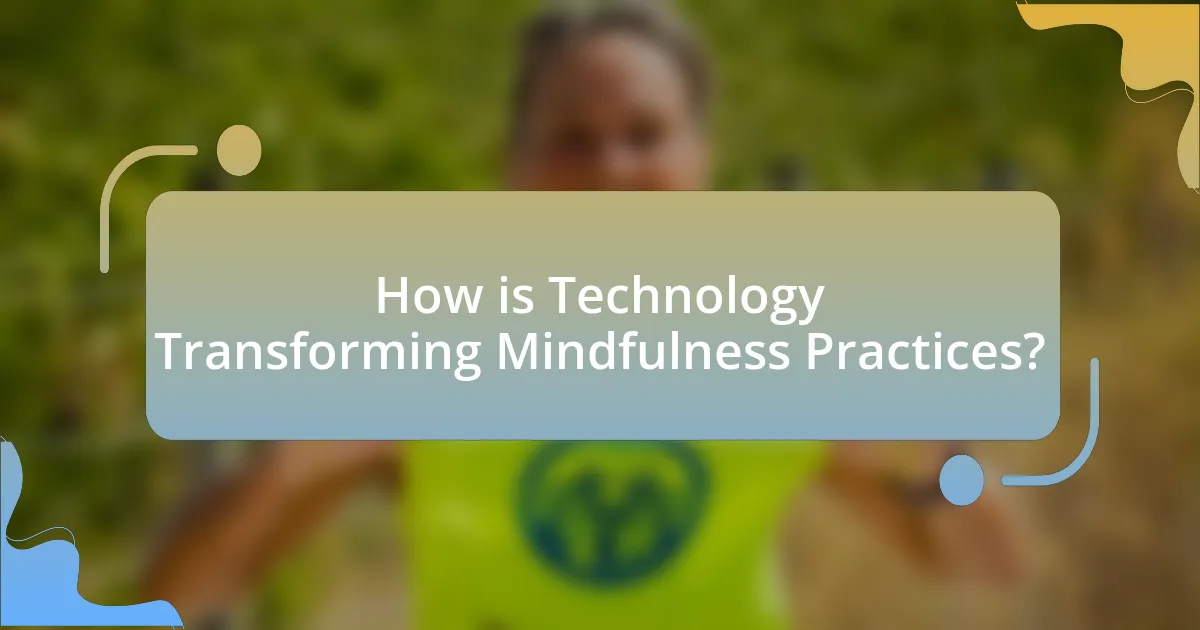
How is Technology Transforming Mindfulness Practices?
Technology is transforming mindfulness practices by integrating digital platforms that enhance accessibility and personalization. Mindfulness apps, such as Headspace and Calm, provide guided meditations, breathing exercises, and progress tracking, making mindfulness more approachable for users. Research indicates that the use of these apps can lead to significant reductions in stress and anxiety levels; for instance, a study published in the journal “Psychological Science” found that participants using mindfulness apps reported a 30% decrease in anxiety after just two weeks of use. Additionally, technology facilitates community building through online forums and social media, allowing users to share experiences and support one another, further enriching their mindfulness journey.
What technological advancements are integrated into Mindfulness Apps?
Mindfulness apps integrate several technological advancements, including artificial intelligence, biometric feedback, and virtual reality. Artificial intelligence personalizes user experiences by analyzing user data to recommend tailored mindfulness exercises. Biometric feedback, such as heart rate monitoring, enhances user engagement by providing real-time insights into physiological responses during mindfulness practices. Virtual reality creates immersive environments that facilitate deeper meditation experiences, allowing users to escape distractions and enhance focus. These advancements collectively improve the effectiveness and accessibility of mindfulness practices, as evidenced by studies showing increased user retention and satisfaction rates in apps utilizing these technologies.
How do these advancements improve accessibility for users?
Advancements in mindfulness apps improve accessibility for users by providing mental health resources that are easily accessible on mobile devices. These apps often include features such as guided meditations, mood tracking, and personalized content, which can be accessed anytime and anywhere, thus removing barriers related to location and time constraints. For instance, a study by the American Psychological Association found that mobile health interventions can significantly increase engagement and adherence to mental health practices, demonstrating that technology can effectively reach a broader audience.
What impact does technology have on the effectiveness of mindfulness practices?
Technology enhances the effectiveness of mindfulness practices by providing accessible tools and resources that facilitate engagement and consistency. Mindfulness apps, such as Headspace and Calm, offer guided meditations, reminders, and progress tracking, which can lead to increased adherence to mindfulness routines. Research indicates that users of mindfulness apps report higher levels of mindfulness and reduced stress, as evidenced by a study published in the journal “Psychological Science” by Flett et al. (2020), which found that app users experienced significant improvements in mental well-being compared to non-users. Thus, technology not only makes mindfulness practices more accessible but also supports users in achieving better mental health outcomes.
Why is user engagement crucial for Mindfulness Apps at expos?
User engagement is crucial for mindfulness apps at expos because it directly influences user retention and the effectiveness of the app in promoting mental well-being. Engaged users are more likely to utilize the app’s features, leading to improved mental health outcomes, as studies indicate that consistent use of mindfulness apps can reduce anxiety and stress levels. For instance, research published in the Journal of Medical Internet Research found that users who engaged regularly with mindfulness apps reported significant reductions in stress and anxiety, highlighting the importance of user interaction in achieving these benefits.
How do expos facilitate user interaction with Mindfulness Apps?
Expos facilitate user interaction with mindfulness apps by providing immersive environments where attendees can engage directly with the technology. These events often feature interactive demonstrations, workshops, and expert-led sessions that allow users to experience the apps in real-time, enhancing their understanding and connection to the tools. For instance, expos may include guided meditation sessions using specific apps, enabling participants to see the benefits firsthand. Additionally, the presence of developers and mental health professionals at these events allows for immediate feedback and personalized recommendations, fostering a deeper user engagement.
What strategies can be employed to enhance user engagement at expos?
To enhance user engagement at expos, interactive technology such as virtual reality (VR) and augmented reality (AR) can be employed. These technologies create immersive experiences that captivate attendees, allowing them to engage with mindfulness apps in a dynamic way. For instance, a study by the Journal of Interactive Marketing found that interactive exhibits can increase visitor retention by up to 70%, demonstrating the effectiveness of such strategies in boosting engagement. Additionally, incorporating gamification elements, such as challenges or rewards for using mindfulness apps, can further motivate users to participate actively, as evidenced by research from the International Journal of Human-Computer Interaction, which highlights that gamification can enhance user interaction and satisfaction.
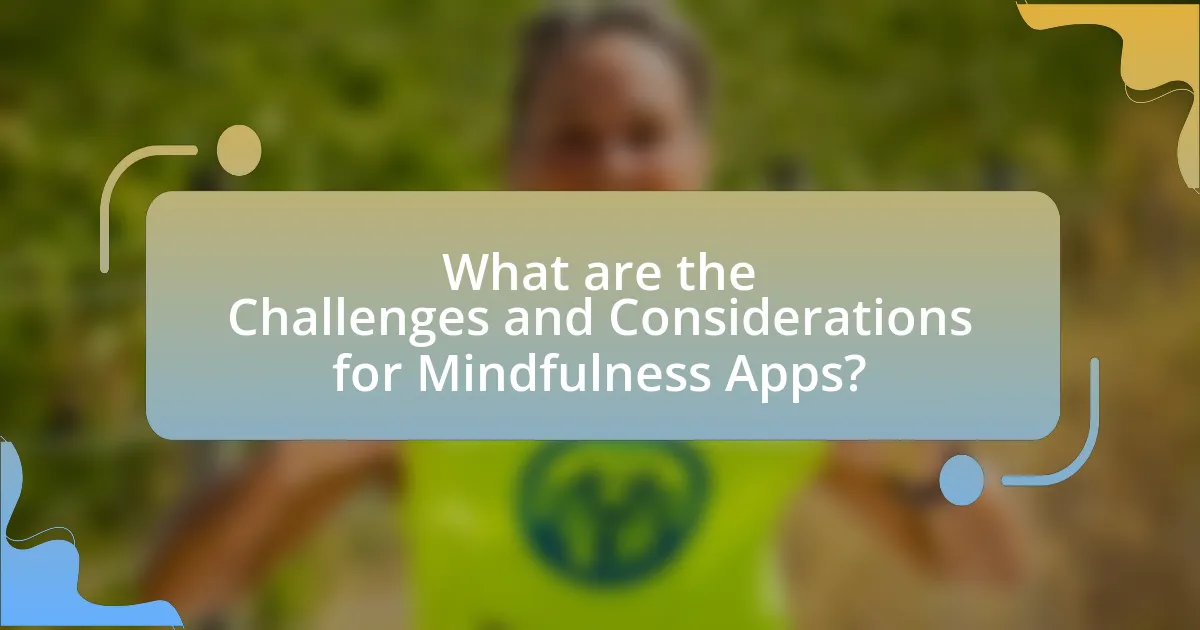
What are the Challenges and Considerations for Mindfulness Apps?
Mindfulness apps face several challenges and considerations, including user engagement, data privacy, and effectiveness. User engagement is critical, as studies indicate that many users abandon apps after a short period; for instance, a report by Statista shows that 77% of users stop using an app within the first three days. Data privacy concerns arise due to the sensitive nature of mental health information, necessitating robust security measures to protect user data. Additionally, the effectiveness of mindfulness apps can vary significantly, with research published in the journal “Psychological Science” indicating that not all apps lead to measurable improvements in mental health outcomes. These challenges highlight the need for developers to create user-friendly, secure, and evidence-based applications to enhance their impact on mental health.
What common challenges do developers face when creating Mindfulness Apps?
Developers face several common challenges when creating mindfulness apps, including ensuring user engagement, maintaining data privacy, and integrating effective content. User engagement is critical, as studies show that only 20% of users continue to use mindfulness apps after the first month. Data privacy is another significant concern, as developers must comply with regulations like GDPR to protect sensitive user information. Additionally, integrating scientifically-backed content is essential for effectiveness; research indicates that apps incorporating evidence-based practices yield better user outcomes.
How can these challenges be addressed effectively?
To address the challenges of implementing mindfulness apps effectively at expos, organizations should prioritize user engagement through interactive features and personalized content. Research indicates that apps with gamification elements, such as rewards for consistent use, significantly increase user retention rates, enhancing the overall effectiveness of mental health interventions. Additionally, providing educational resources within the app can empower users with knowledge about mindfulness practices, leading to better outcomes. A study published in the Journal of Medical Internet Research found that users who engaged with educational content alongside mindfulness exercises reported higher satisfaction and improved mental health metrics.
What ethical considerations should be taken into account?
Ethical considerations in the context of mindfulness apps enhancing mental health at expos include user privacy, data security, informed consent, and the potential for dependency. User privacy is critical, as these apps often collect sensitive personal information; thus, developers must ensure robust data protection measures are in place. Data security is essential to prevent unauthorized access to user data, which can lead to breaches of confidentiality. Informed consent requires that users are fully aware of how their data will be used and the implications of using the app. Lastly, the potential for dependency on these apps for mental health support raises concerns about the effectiveness of technology as a substitute for professional help. These considerations are supported by guidelines from organizations like the American Psychological Association, which emphasize the importance of ethical standards in digital mental health interventions.
How can users maximize the benefits of Mindfulness Apps at expos?
Users can maximize the benefits of Mindfulness Apps at expos by actively engaging with the app features during sessions and utilizing guided practices tailored to their needs. By setting specific intentions for their mindfulness practice, users can focus on stress reduction or enhancing concentration, which is particularly beneficial in the often overwhelming environment of expos. Research indicates that structured mindfulness practices can lead to improved emotional regulation and reduced anxiety, making it essential for users to integrate app usage into their expo experience. Furthermore, users should take advantage of any interactive features, such as community forums or live sessions, to enhance their learning and connection with others, thereby reinforcing the benefits of mindfulness in a social context.
What tips can enhance the mindfulness experience during expos?
To enhance the mindfulness experience during expos, individuals should engage in focused breathing exercises, which help center attention and reduce anxiety. Research indicates that deep breathing can lower stress levels and improve concentration, making it easier to absorb information and connect with others. Additionally, utilizing mindfulness apps, such as Headspace or Calm, can provide guided meditations tailored for busy environments, allowing attendees to take brief moments of reflection amidst the hustle. Studies show that even short mindfulness practices can significantly enhance emotional well-being and cognitive function, making them effective tools during expos.
How can users integrate Mindfulness Apps into their daily routines post-expo?
Users can integrate Mindfulness Apps into their daily routines post-expo by setting specific times for mindfulness practice, such as morning or evening sessions. Establishing a consistent schedule helps reinforce the habit, making it easier to incorporate mindfulness into everyday life. Research indicates that regular mindfulness practice can reduce stress and improve overall mental well-being, as shown in studies published in journals like “Psychological Science” which highlight the benefits of consistent mindfulness engagement. Additionally, users can utilize app features like reminders and guided sessions to enhance their commitment and track their progress, further solidifying the integration of mindfulness into their daily activities.
